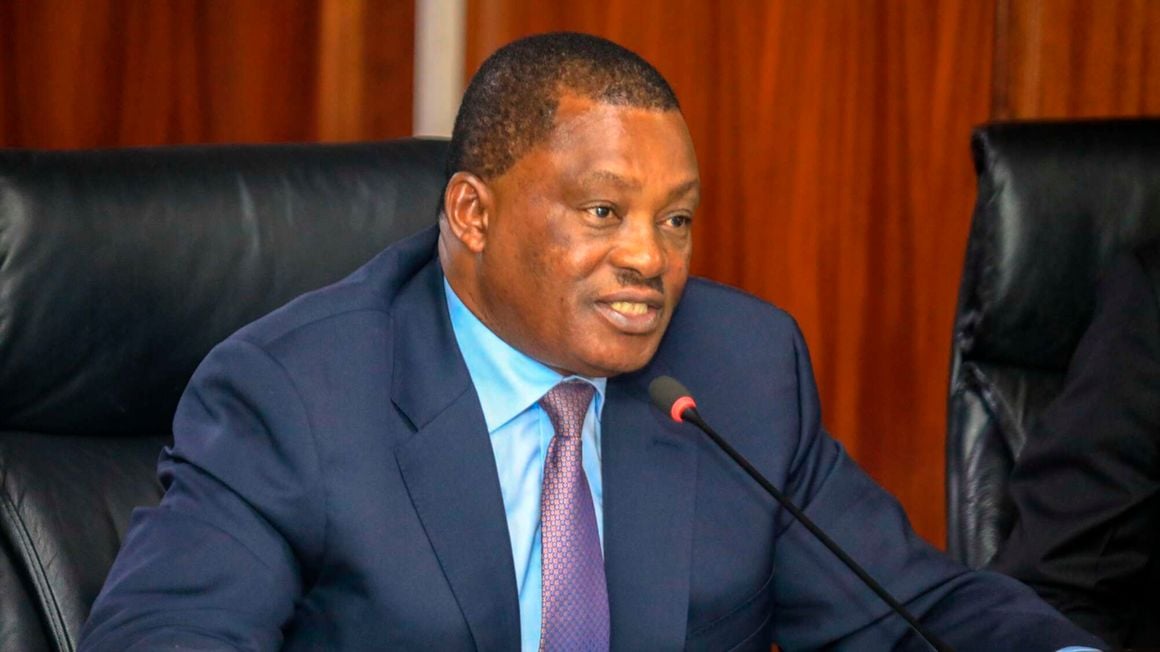
Attorney General Justin Muturi. FILE PHOTO | DENNIS ONSONGO | NMG
Attorney-General Justin Muturi has cautioned the Kenya Revenue Authority (KRA) against continuing to
collect the controversial affordable housing levy after it was declared illegal by Court of Appeal judges last month.Mr Muturi told the KRA in an advisory that there was no legal basis for enforcing the housing tax at the time of the court’s decision.
“The upshot of this is that there is no legal basis on which the housing levy as provided in section 84 of the Finance Act can be implemented,” the AG said in a letter to KRA Commissioner-General Humphrey Wattanga.
Read: National Assembly clears 1.5pc housing levy on gross pay
“Therefore, our considered opinion is that as of the date of delivery of the ruling of the Court of Appeal i.e. on January 26, 2024, there is no legal provision that enables the collection and administration of the housing levy.”
The letter was copied to Treasury principal secretary Chris Kiptoo and his Housing and Urban Development counterpart Charles Hinga and Solicitor-General Shadrack Mose.
Mr Muturi’s directive comes as a relief to more than 3.2 million Kenyans in formal employment who have been paying the contentious housing levy.
Employers and employees paid out Sh26.8 billion under the mandatory housing development levy in the six months that ended in December, amid legal hitches that threaten to derail the controversial affordable housing programme.
Disclosures by the Parliamentary Budget Office (PBO), which advises lawmakers on the economy and budget, show the State Department for Housing and Urban Development had collected the amount against the Sh63.2 billion that the State targets to net during the financial year ending June 2024.
At Sh26.8 billion, the government is averaging collections of Sh4.47 billion per month against the budgeted Sh5.26 billion, translating to a performance rate of about 85 percent from the compulsory levy that has now been suspended by the courts.
Both employers and employees were remitting 1.5 percent of gross salary as housing levy that the government said would be used in the development of affordable homes and associated social and physical infrastructure. The High Court last November declared the levy unconstitutional but allowed the government to continue collecting it until January 10 to give it time to appeal.
The Court of Appeal on January 26 stopped the State from carrying on with the collections and Parliament has announced the intention to appeal the matter at the Supreme Court.
PBO, in the financial and economic analysis of the Affordable Housing Bill 2023 that seeks to provide a legal framework to the levy, notes that the Bill has several key gaps but warns that the government will be exposed to legal risks given the many contracts it had already signed.
Read: State nets Sh26.8bn from housing levy amid legal row
“If the current status is not addressed and the levy remains nullified, the government will be exposed to fiduciary risks due to the contractual obligations it has already entered with property developers for the ongoing projects since its exchequer funding is constrained,” says PBO.
→ botieno@ke.bationmedia.com




No comments :
Post a Comment